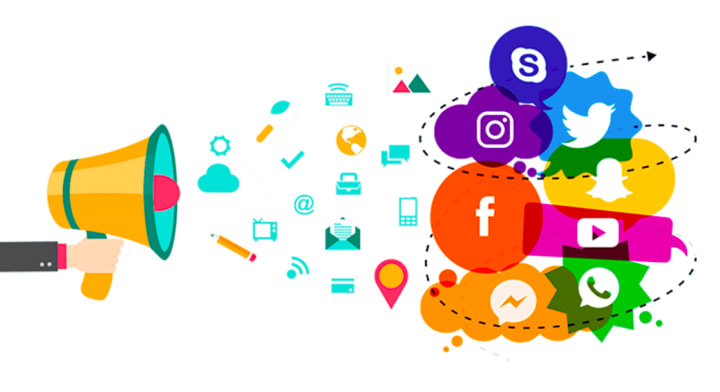Navigating the Social Media Landscape
Connecting, Communicating

In the digital age, social media has become an indispensable aspect of our daily lives. From staying connected with friends and family to accessing news and entertainment, platforms like Facebook, Instagram, Twitter, and TikTok have transformed the way we interact with each other and the world around us. With billions of users worldwide, social media has become a powerful tool for communication, collaboration, and community building. However, it also comes with its own set of challenges and complexities.
The Power of Connection
One of the most significant benefits of social media is its ability to connect people from all corners of the globe. Whether you're rekindling old friendships or forging new ones, social media platforms provide a virtual space where individuals can come together to share ideas, experiences, and interests. From group chats to online communities, these platforms facilitate communication and collaboration in ways that were previously unimaginable.

Furthermore, social media has revolutionized the way businesses and organizations interact with their customers and supporters. Through targeted advertising, influencer partnerships, and customer engagement strategies, brands can reach their target audiences more effectively than ever before. Social media has leveled the playing field, allowing small businesses and startups to compete with industry giants on a global scale.
The Challenge of Misinformation
Despite its many benefits, social media also presents significant challenges, chief among them being the spread of misinformation. With the click of a button, false or misleading information can be shared to millions of users, leading to confusion, polarization, and distrust. From fake news articles to doctored images, distinguishing fact from fiction has become increasingly difficult in the digital age.
To combat the spread of misinformation, social media companies have implemented various measures, including fact-checking initiatives, content moderation policies, and algorithmic changes. However, addressing this issue requires a collaborative effort involving users, platform developers, and policymakers alike. By promoting media literacy, critical thinking, and responsible sharing practices, we can work together to mitigate the impact of misinformation on social media.
The Importance of Digital Well-being
Another challenge associated with social media is its impact on mental health and well-being. The constant stream of curated content, likes, and comments can lead to feelings of inadequacy, anxiety, and loneliness, particularly among younger users. Additionally, excessive screen time and digital dependence can have negative consequences on sleep patterns, productivity, and overall quality of life.
To promote digital well-being, it's essential to strike a balance between online and offline activities. Setting boundaries around screen time, practicing self-care, and engaging in meaningful face-to-face interactions can help mitigate the negative effects of social media. Moreover, social media companies have a responsibility to design platforms that prioritize user well-being and foster positive online experiences.
Cultivating Authentic Communities
Despite its pitfalls, social media also has the potential to foster genuine connections and meaningful relationships. By cultivating authentic communities based on shared interests, values, and experiences, users can find support, inspiration, and belonging in the digital realm. Whether it's a niche hobby group or a virtual support network, these communities serve as valuable sources of camaraderie and connection in an increasingly fragmented world.
As we navigate the ever-evolving landscape of social media, it's essential to approach these platforms with mindfulness, intentionality, and empathy. By leveraging the power of connection, combating misinformation, prioritizing digital well-being, and cultivating authentic communities, we can harness the full potential of social media to create positive change in our lives and the world around us.
In conclusion, social media is a double-edged sword that presents both opportunities and challenges. While it has revolutionized the way we connect, communicate, and collaborate, it also requires careful navigation to avoid its pitfalls. By fostering a culture of responsible use, critical thinking, and empathy, we can harness the transformative power of social media for the greater good.
About the Creator
Oliver Jack
I am a writer and reader






Comments
There are no comments for this story
Be the first to respond and start the conversation.